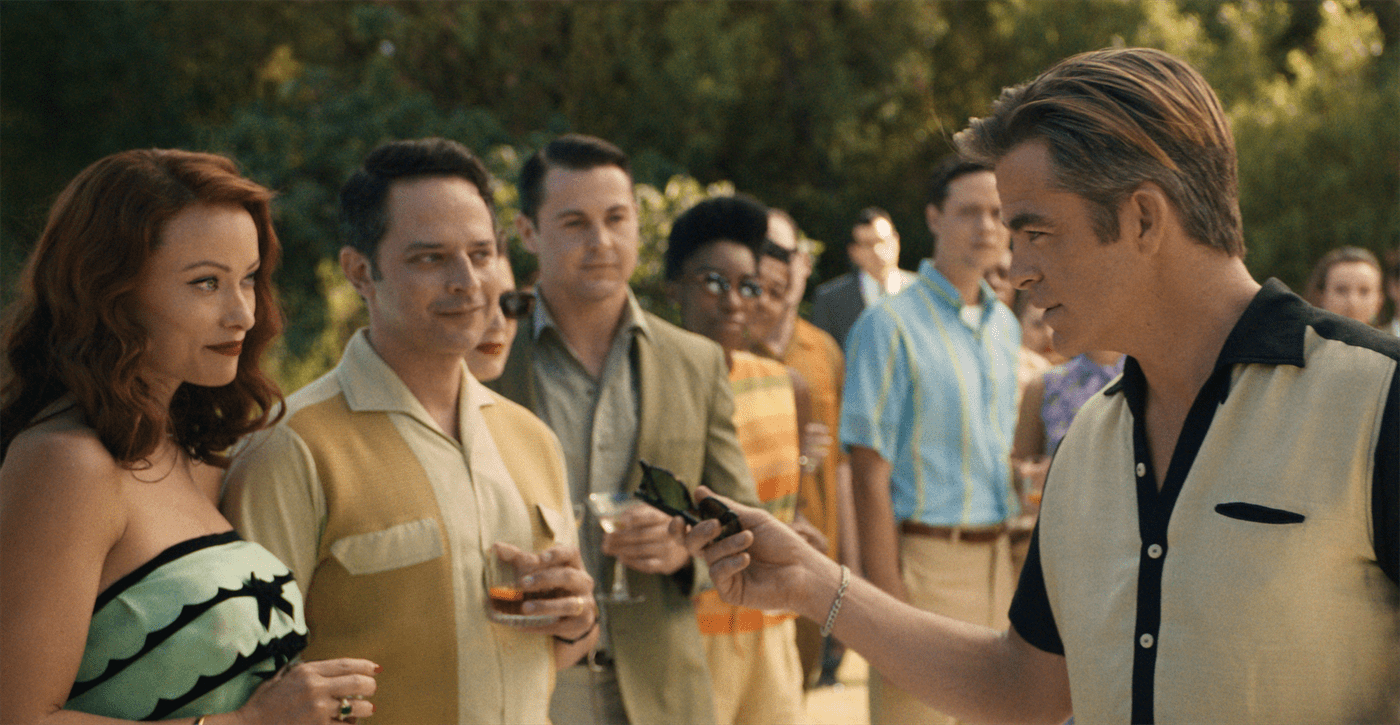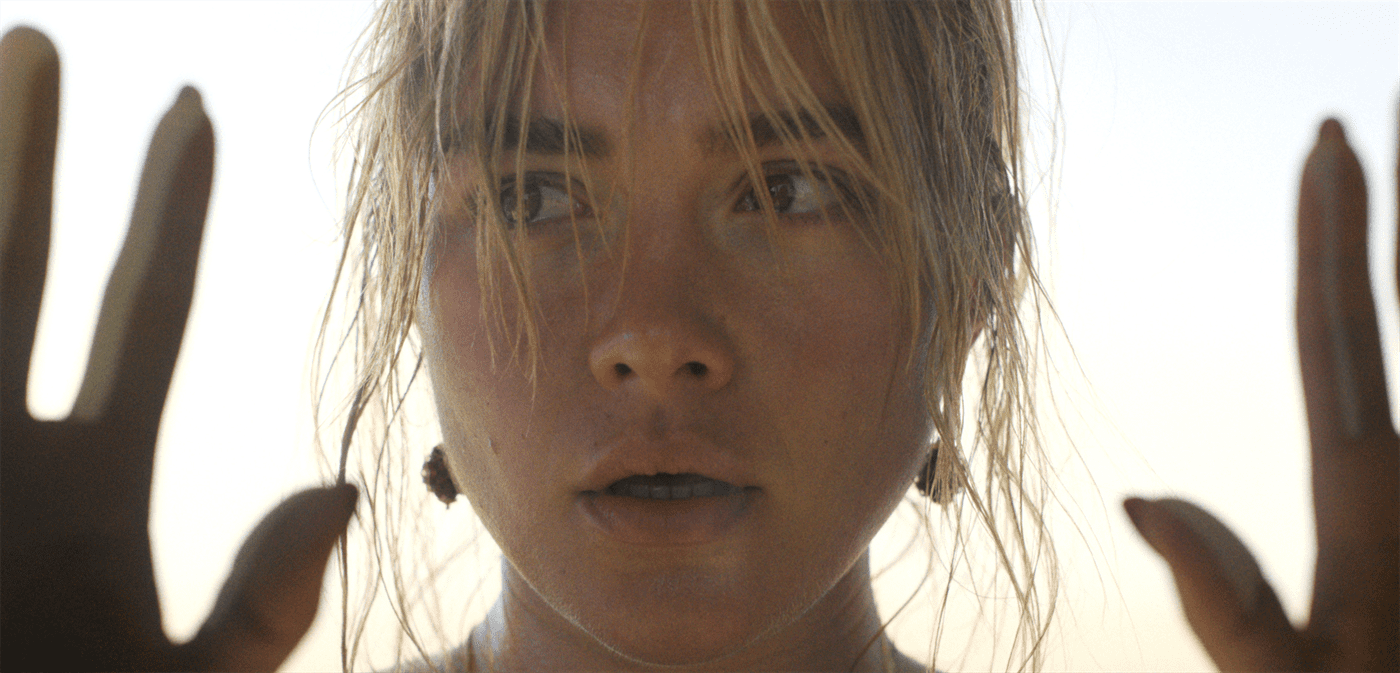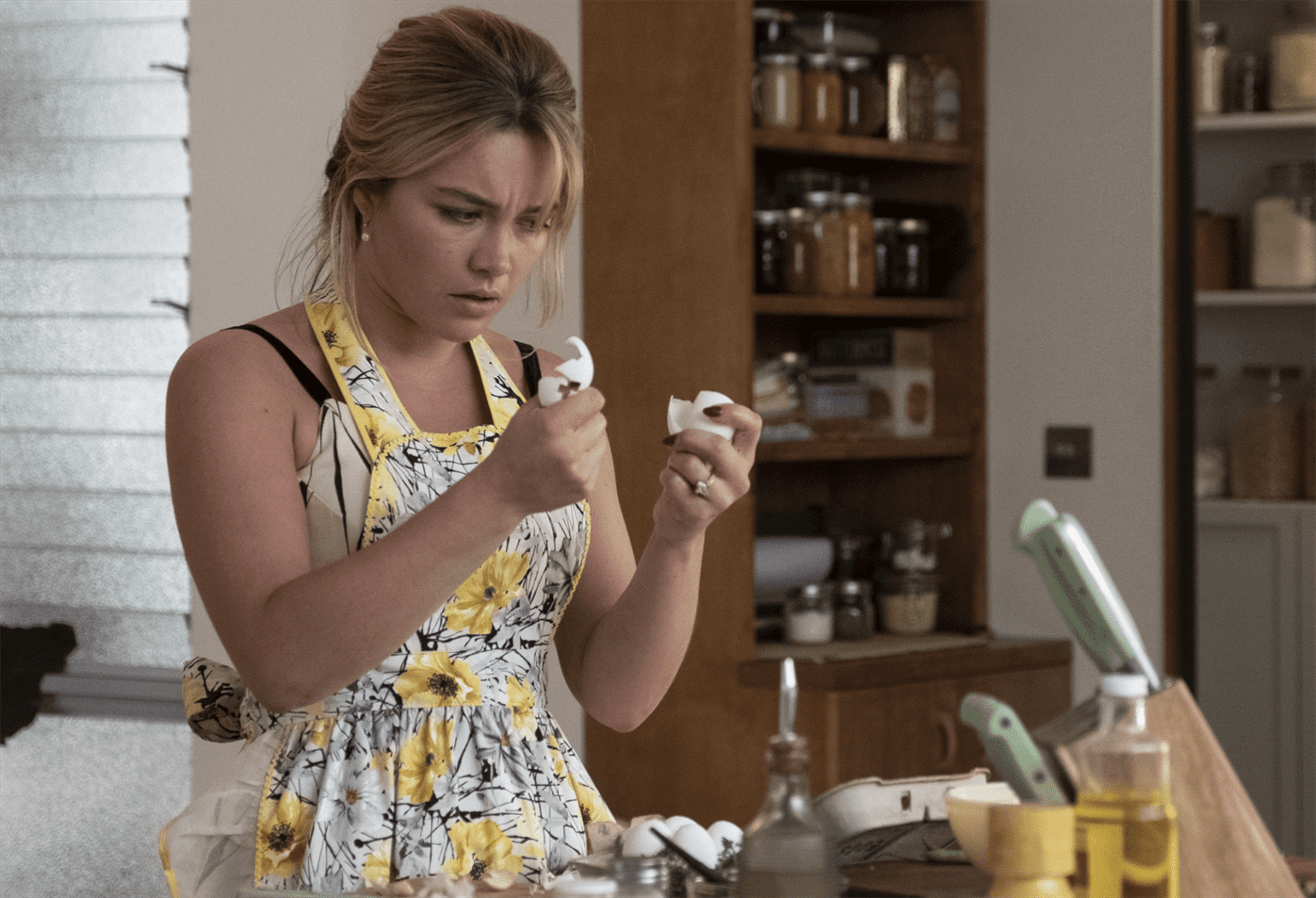Consider this my formal apology for anything negative I have ever said about Miss Olivia Wilde; “Don’t Worry Darling” absolutely blew me away.
“Don’t Worry Darling” follows the lives of Alice (Florence Pugh) and Jack (Harry Styles) as they navigate their new hometown of Victory, California. When Alice’s friend, Margaret (KiKi Layne), begins to have uncharacteristic outbursts, Alice starts to wonder if the crazy questions Margret has been repeating might make a lot more sense than she originally thought. Alice begins to question her surroundings, calling out the town’s founder, Frank (Chris Pine), who seems to be much more sinister than his dazzling smile may lead you to believe.

(left to right) Bunny (Olivia Wilde) and Dean (Nick Kroll) listen to Frank’s (Chris Pine) speech.
Photo courtesy of Warner Bros. Pictures
Without revealing too much more, the movie lends itself to Plato’s “Allegory of the Cave,” where not asking questions has become a way of life for the women living within the town.
I would consider this film an evolution of Wilde’s directorial debut, “Booksmart,” in the way it is artfully able to capture the experience of womanhood. However, the way “Don’t Worry Darling” accomplishes this is in a much less direct way than its predecessor, using allegory to drive its point home instead of comedy.
The third act’s twist left me leaning forward in my chair, mouth agape, phone in hand ready to go to bat with trolls on Twitter critiquing Wilde’s directorial style from their couches. I thoroughly enjoyed watching Wilde’s vision play out on screen. It was so clear this film came from a place of familiarity with Alice’s character and the things she endures that it becomes difficult to not see your own reflection in any mirror Alice looks into.
Obviously, Pugh’s portrayal of Alice is the standout of the film. Pugh handles this role with such power; she creates this wonderful bubble around herself, basically acting circles around the large majority of her co-stars.
Gemma Chan as Shelley (Frank’s wife) and Wilde as Bunny were also incredible performances, the latter of which I was not expecting to enjoy as much as I did.
Shelley is just as intimidating as Frank, if not more, hiding her chilling ethos behind an aura of femininity and perfection that only a TV housewife from the 1950s could ever hope to achieve. Bunny, who serves as Alice’s closest friend, is almost painfully oblivious to the chaos moving around her, even sometimes ignoring her own children for a good cocktail.
Both represent very specific archetypes of femininity and are constantly keeping you on your toes as to which side they might ultimately be on.
The subtleties of this movie really tie it together, from the food and the clothes to the off-handed remarks that hint at misogyny within the town of Victory’s perfect world. It touches on abuse and how it can start as minor actions and build up into something that is physically damaging.
I would categorize this as a “Good for Her” film; the women of “Don’t Worry Darling” are the glue that holds it together, and that was almost certainly deliberate.
In its entirety, the film is well-paced and entertaining, definitely earning a spot in my top 10 favorite movies of all time. I highly suggest seeing it as soon as you possibly can, or as soon as you can bribe a Harry Styles fan to let you have a seat in the theater.




